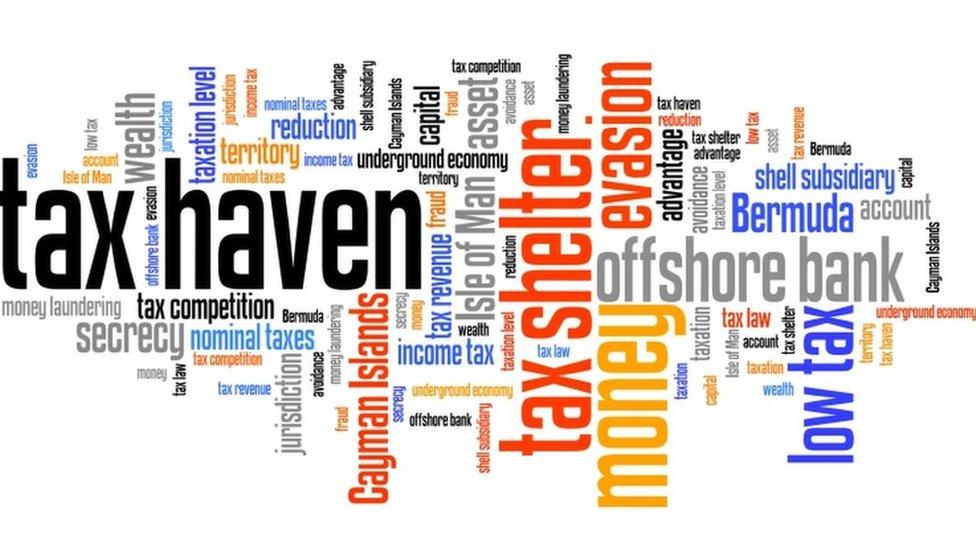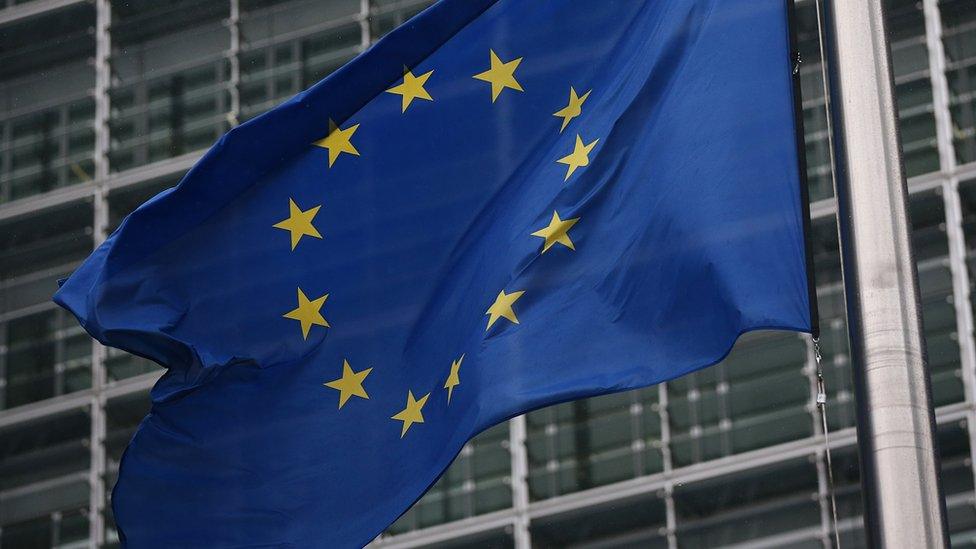A tax inspector calls
- Published

It's not a good time to be a tax dodger. Some 46 national tax authorities are on your case, fired up by both the scale of tax avoidance evident in the Panama Papers, and the political momentum this gives them to make some serious progress.
That's why the unsnappily-titled Joint International Tax Shelter Information and Collaboration network (JITSIC) is gathered in Paris, under the umbrella of the (cumbersomely-monickered) Organisation for Economic Co-operation and Development (OECD).
This so-called 'rich countries club' has been given the task of pursuing the erosion of countries tax bases by multi-national corporations. That much has been agreed by the G7 developed nations group, and the wider G20.
And in researching this, the OECD has come up with some fairly startling findings about the extent to which multi-nationals game the system.
As I noted before, they reckon that between $100bn and $240bn of corporate tax goes unpaid because of these accounting practices - locating profit where tax is lowest, and locating interest where tax is highest, and where interest payments on debt can be written off as an business expense. That is between 4% and 10% of all corporate income tax paid each year.
Healthy profits
Getting to that big figure, the OECD economists have delved into company accounts, to find:
* Profit rates for subsidiaries in low-tax countries are twice as high as these companies' average profit. Put another way, companies can make their profits look twice as healthy in countries with much lower tax.
* Tax rates are between 4 and 8.5 percentage points lower for multi-national corporations than the average tax rate levied on companies that don't straddle borders. That is a measure of how much they game the system to lower tax liabilities, compared with those who do not have the same opportunities to do so. That means a very uneven playing field, if you are a one-country business.
* The ratio of interest-to-income is almost three times higher in subsidiaries with high tax than it is across these large multi-nationals. That is a measure of how much they load up their interest charges to places where they can minimise taxable income.
The OECD has been calling for some time for country-by-country reporting. That has been applied to banks already. Now, the European Commission wants to apply it to larger companies too.
That's come from the British commissioner, responsible for financial services, Lord Jonathan Hill. The proposal ought to have an impact on companies such as Amazon, which releases its financial figures in two parts - the USA and 'the rest of the world'.

A move to country-by-country reporting may have taken some swallowing for the president of the commission to accept that recommendation.
Jean-Claude Juncker was prime minister of Luxembourg for 19 years, while it benefited from obscure accounting by multi-nationals.
Its headline tax rates may be comparable with neighbours, but there are reasons why a large share of Foreign Direct Investment goes through the Duchy. And having relaxed some rules, one of its new attractions is a 'freeport' where you can stash your gold bullion tax-free.
But as the European Commission measures cover only large companies, and as it will not require reporting in all tax jurisdictions around the world, poverty development campaigners say the loopholes remain far too large and could turn out to be pointless.
Christian Aid is one of the groups claiming that the UK has been resisting this extra reporting burden on large companies, and doesn't want to see the naming of beneficiaries of overseas trusts.
If the opportunities are still there, accountants and tax lawyers will surely continue to exploit them. That's unless consumer power bears down on the big corporations.